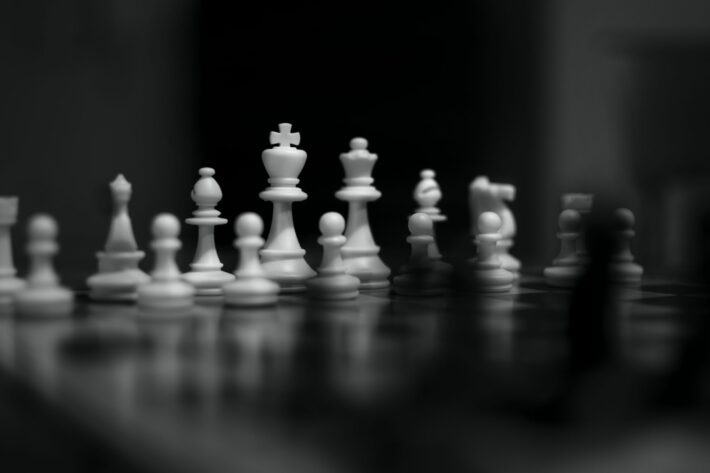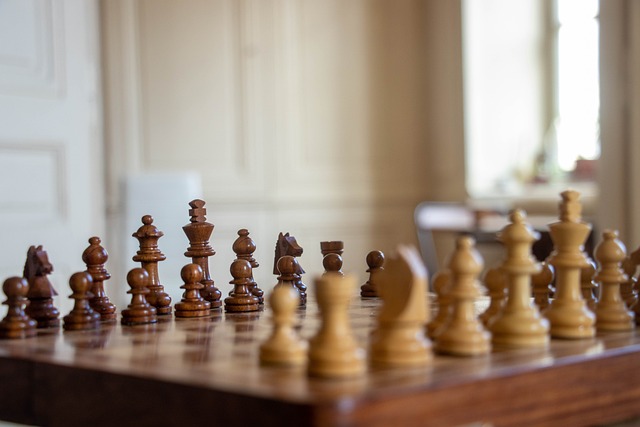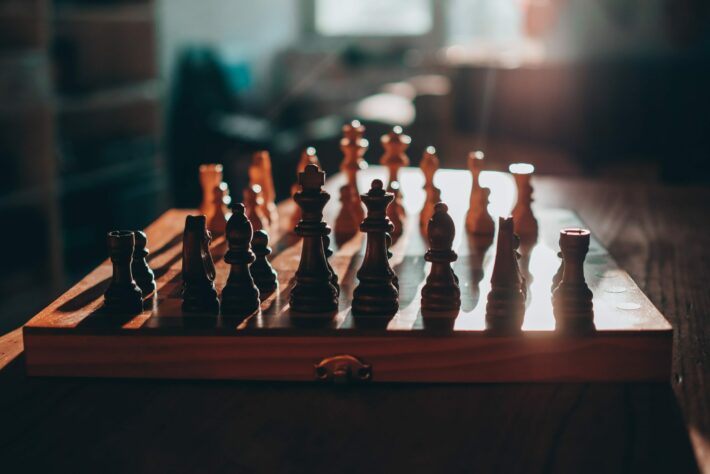Embarking on the path to chess mastery requires a deep understanding of all its facets, and the endgame stands as a crucial battleground where victories are often determined. As aspiring chess enthusiasts, we find ourselves pondering the best way to unravel the complexities of endgame theory.
In this article, we explore an array of thought-provoking questions that will guide you towards a unique and effective approach to studying the chess endgame. Prepare to enhance your strategic prowess and unleash your potential on the checkered battlefield.
What Makes the Endgame the Deciding Phase of a Chess Game?
The endgame, with its dwindling number of pieces on the board, becomes the ultimate test of skill and strategy. It is during this phase that the true essence of a player’s understanding and foresight is revealed.
In the absence of overwhelming tactical maneuvers, the endgame demands precise calculation, delicate maneuvering, and an acute awareness of the smallest nuances. It is here that the smallest advantage can be transformed into a decisive victory, making the endgame the true battleground where champions are crowned.
How Can You Transform Weaknesses into Strengths during the Endgame?

In the chess endgame, weaknesses can be the stepping stones to success if approached with the right mindset and strategy. Instead of being deterred by weaknesses, astute players see them as opportunities to transform the tide of the game. By exploiting their opponent’s vulnerabilities and meticulously planning their moves, players can strategically convert weaknesses into strengths.
This requires shrewd calculation, accurate piece coordination, and a deep understanding of positional play. Embrace the endgame as a canvas to unleash your creativity and turn weaknesses into triumphs.
What Are the Essential Endgame Principles Every Chess Player Should Know?
To excel in the endgame, aspiring chess players must grasp the essential principles that govern this critical phase of the game. Principles such as king activity, pawn structure, piece coordination, zugzwang, and the opposition play a pivotal role in guiding decision-making.
Understanding the power of these principles enables players to make sound strategic choices, find the optimal move sequences, and navigate the complexities of endgame positions with confidence. Mastering these fundamental principles is the key to unlocking success in the endgame.
Is There a “One-Size-Fits-All” Approach to Studying Endgame Theory?
Chess, with its vast complexity, rarely adheres to a one-size-fits-all approach, and studying the endgame is no exception. Each player has their unique strengths, weaknesses, and playing style. Similarly, the endgame encompasses a multitude of positions, scenarios, and challenges.
To truly excel, players must tailor their approach to studying endgame theory according to their individual needs. This involves identifying personal areas of improvement, honing specific techniques, and immersing oneself in a diverse range of endgame positions and strategies. Embrace the beauty of customization as you embark on your journey to master the endgame.
Why Should You Embrace Practical Endgame Exercises?
Practical endgame exercises form the bridge between theoretical knowledge and practical application. While studying endgame theory is crucial, it is the practical exercises that truly sharpen your skills and develop your intuition.
By solving endgame puzzles, analyzing real-game scenarios, and engaging in interactive challenges, you enhance your ability to spot tactical opportunities, make accurate calculations, and make informed decisions under pressure.
Embrace practical endgame exercises as the laboratory where you refine your skills, gain experience, and transform theory into tangible expertise.
How Do Grandmasters Perfectly Navigate the Complexity of Endgames?
Grandmasters, the epitome of chess excellence, possess an innate ability to navigate the labyrinthine complexities of the endgame with remarkable finesse. They combine their profound understanding of endgame principles, extensive experience, and exceptional calculation skills to unravel intricate positions.
Their strategic maneuvering, accurate evaluation of pawn structures, prophylactic thinking, and precise calculation lay the foundation for their success. By studying their games, analyzing their moves, and absorbing their thought processes, you can gain valuable insights into the art of navigating endgames like a grandmaster.
Can Studying Classical Endgame Masterpieces Transform Your Skills?

Classical endgame masterpieces, etched in the annals of chess history, carry profound lessons and enduring beauty. These captivating games, played by legendary players, demonstrate the highest levels of strategic and tactical brilliance in the endgame.
By immersing yourself in these timeless masterpieces, analyzing the strategic concepts, and grasping the subtleties of their moves, you can elevate your own understanding and skill in the endgame. Allow the wisdom of the chess giants to inspire your own transformative journey toward endgame excellence.
Is It More Important to Memorize Endgame Positions or Understand Concepts?
While memorizing endgame positions can be useful, true mastery lies in understanding the underlying concepts. Memorization alone restricts one’s ability to adapt to new positions and hampers the development of critical thinking skills.
Understanding the concepts allows for flexibility, creativity, and the ability to apply strategic principles to a wide array of endgame scenarios.
By delving into the intricacies of concepts such as pawn structures, piece activity, and king safety, you cultivate a deeper appreciation for the endgame and unlock the potential to make informed decisions based on solid understanding. Prioritize conceptual understanding, and let it guide your every move in the endgame.
What Role Does Calculation Play in Mastering the Chess Endgame?
Calculating moves with precision and foresight is a crucial skill in mastering the chess endgame. It is through an accurate calculation that players can evaluate potential variations, foresee consequences, and devise winning strategies. The endgame often requires a deep calculation to assess complex pawn promotions, king marches, and tactical possibilities.
By honing your calculation abilities, you sharpen your tactical vision, increase your ability to find hidden resources and make decisive moves that can turn the tide of the game. Embrace the exhilarating mental challenge of calculation and witness your endgame skills soar to new heights.
How Can You Develop an Intuitive Sense for Endgame Strategies?
Developing an intuitive sense for endgame strategies comes with experience, practice, and a deep understanding of endgame principles. By immersing yourself in various endgame positions, studying classic games, and solving practical exercises, you gradually develop a feel for the dynamics and subtleties of endgame play.
This intuitive sense allows you to instinctively recognize key strategic ideas, evaluate pawn structures, and anticipate critical moves. Nurturing your intuition in the endgame empowers you to make confident, bold decisions and seize opportunities that lead to victory.
Are There Hidden Patterns and Themes in Endgame Positions?

Endgame positions often conceal hidden patterns and recurring themes that can greatly influence the outcome of the game. Recognizing these patterns and themes allows players to make informed decisions and develop effective strategies.
From fortress constructions to triangulation maneuvers, from opposition to zugzwang, these patterns provide valuable insights into the underlying dynamics of endgame play. By studying and internalizing these patterns, you gain a tactical arsenal that empowers you to navigate the complexities of endgame positions with finesse and precision.
Why Should You Engage in Endgame Studies by Renowned Chess Composers?
Engaging in endgame studies crafted by renowned chess composers offers a unique opportunity for growth and enrichment. These studies, carefully constructed to showcase strategic ideas and tactical motifs, provide a wealth of knowledge and challenge players to think creatively.
By immersing yourself in these intricate puzzles, you sharpen your calculation skills, expand your understanding of key endgame concepts, and cultivate your ability to find elegant solutions. Endgame studies by esteemed composers serve as a wellspring of inspiration, enabling you to embark on a captivating journey of discovery and improvement.
Can Analyzing Your Own Endgame Battles Enhance Your Growth?
Analyzing your own endgame battles is an invaluable tool for personal growth and improvement. It allows you to reflect on your decision-making, identify strengths and weaknesses, and gain insights into your playing style.
By critically evaluating your moves and exploring alternative possibilities, you cultivate a deeper understanding of your strengths and areas for improvement.
This self-analysis fosters self-awareness and empowers you to make conscious efforts to enhance your endgame skills. Embrace the opportunity to learn from your own games and let self-reflection be the catalyst for your progress on the path to endgame mastery.
What Role Does Visualization Play in Excelling at the Endgame?
Visualization, the ability to mentally picture future positions and analyze potential moves, plays a vital role in excelling at the endgame. Through visualization, players can explore multiple variations, foresee the consequences of their moves, and envision complex pawn structures.
By practicing and honing your visualization skills, you enhance your ability to calculate accurately, plan ahead, and make precise moves.
Visualization not only sharpens your analytical abilities but also fosters creativity and strategic thinking. Embrace the power of visualization, and let your mind paint a vivid picture of victory in the endgame.
How Can You Incorporate Endgame Theory into Your Overall Chess Training Regimen?
| Approach | Advantages | Considerations |
|---|---|---|
| Studying Endgame Books |
|
|
| Practical Endgame Exercises |
|
|
| Studying Classic Endgame Masterpieces |
|
|
| Engaging in Endgame Studies by Renowned Composers |
|
|
| Analyzing Your Own Endgame Battles |
|
|
Incorporating endgame theory into your overall chess training regimen is essential for holistic improvement. Allocate dedicated time to study endgame principles, learn strategic concepts, and analyze classic endgame positions.
Integrate endgame exercises into your practice routine, solving puzzles, and analyzing practical examples. Additionally, actively seek opportunities to apply endgame knowledge in your games, reflecting on the outcomes and learning from each experience.
By weaving endgame theory into your training, you develop a well-rounded understanding of chess, strengthen your overall skills, and set a solid foundation for success in all stages of the game.
Closing thoughts
In the intricate realm of chess endgame theory, the path to mastery unfolds through a combination of knowledge, practice, and a passion for the game. By delving into the questions posed and exploring the unique facets of the endgame, you embark on a transformative journey.
Embrace the challenge of calculation, nurture your intuition, unravel hidden patterns, and engage with the wisdom of renowned composers. Analyze your own battles, harness the power of visualization, and seamlessly integrate endgame theory into your training regimen.
With each move and decision, you inch closer to unlocking the secrets of the endgame and ascending to new heights of strategic brilliance. Let your love for the game guide you as you navigate the captivating world of chess endgame theory, where victory awaits those who dare to embark on this remarkable odyssey.




